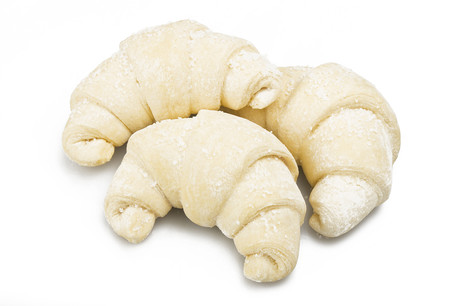Going frozen — good for retailers and potential for bakers

Ah — the enticing smell of freshly baked breads and pastries. Always a great way to attract customers.
Knowing this, many restaurants, cafes and caterers are moving away from multiple deliveries of fresh bakery items. Instead they are purchasing par-baked and fully baked frozen breads, pastries and sweets.
The environmental benefits of going frozen
Environmentally there can be no denying the benefits of receiving frozen goods. Frozen products remain fresher for longer and therefore negate the need for more frequent deliveries, which means fewer delivery vehicles making frequent trips. It also makes sense economically, as there are fewer deliveries to pay for.
“People care about where their food has come from and what kind of footprint it is leaving behind, and business owners are increasingly tuned into this as well,” said Bakers Maison Managing Director Pascal Chaneliere.
In an age of phenomenal food wastage, it is beneficial to be able to manage what is used and what is saved for another day. Frozen items can be used as required, with the excess stock retained in the freezer. It also means that there is no such thing as ‘yesterday’s bread’, which eliminates the need for disposal and the threat of serving products that are less than fresh. Products can be quickly cooked and served to customers as required.
Which gives way to the wafting smell of baking bread or pastries that is absolutely irresistible. Frozen items are baked in the oven and served straight to customers as needed. There is no sacrifice in quality either, as items have been snap frozen to retain their flavour, quality and goodness.
While it might be acceptable to run out of the daily special, there is no forgiving running out of bread or pastries. The flexibility of frozen means that running out is never a threat, ensuring customers remain satisfied and there is one less concern for business owners.
The growing trend towards par-baked and fully baked frozen breads, pastries and sweets is a reflection of a changing society that understands the need to reduce environmental footprints. It also illustrates how food manufacturers can use the improvements in the frozen sector to grow their businesses.
Six beverage trends predicted for 2026
Demand for customisation, 'protein-ification' and sustainable storytelling are some of...
Making UHT processing less intensive on energy
A nutritional beverages company was seeking a more sustainable way to produce UHT beverages using...
Tasty twist for chocolate alternatives
Food scientists develop two novel flavour-boosting techniques to transform carob pulp into a...











